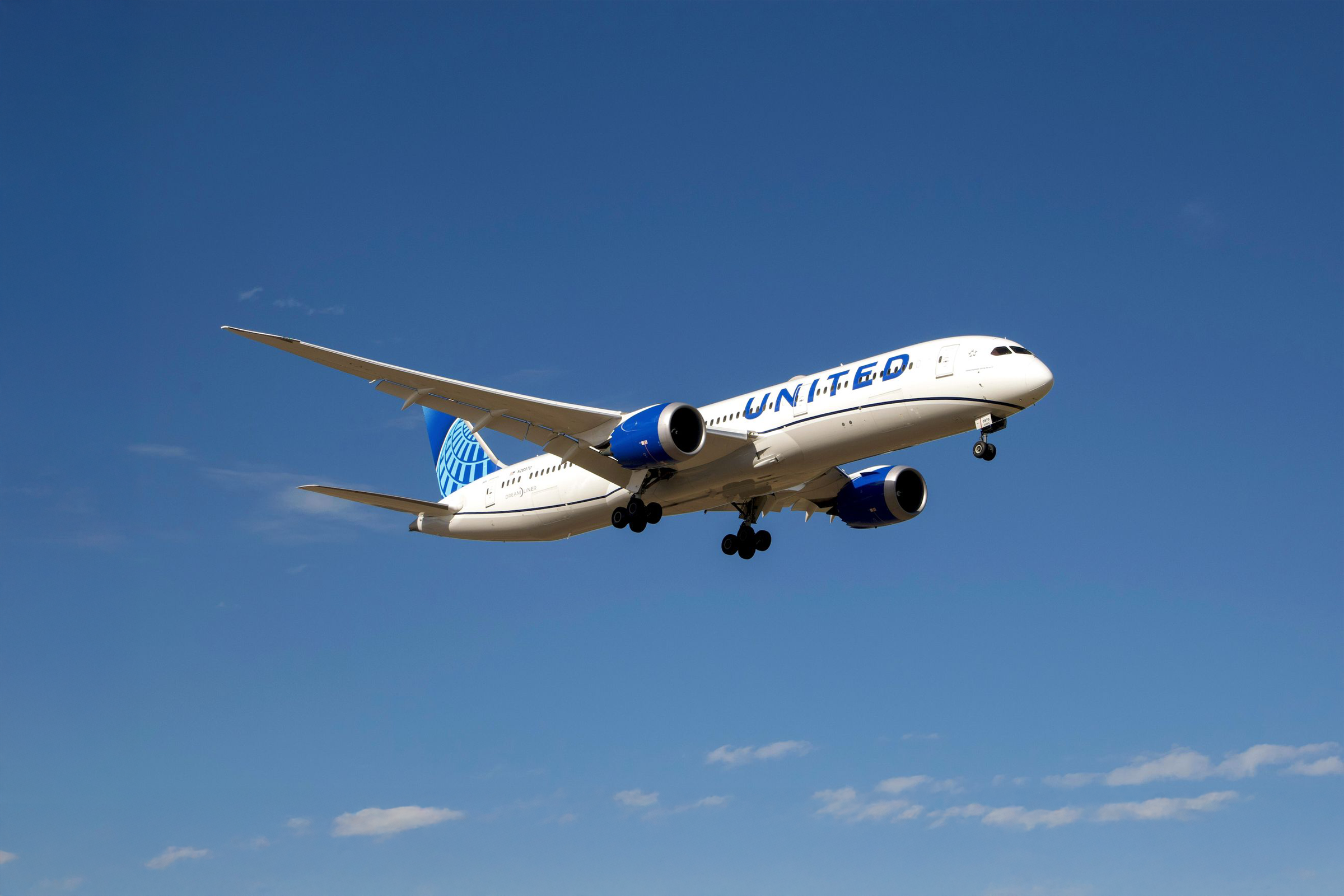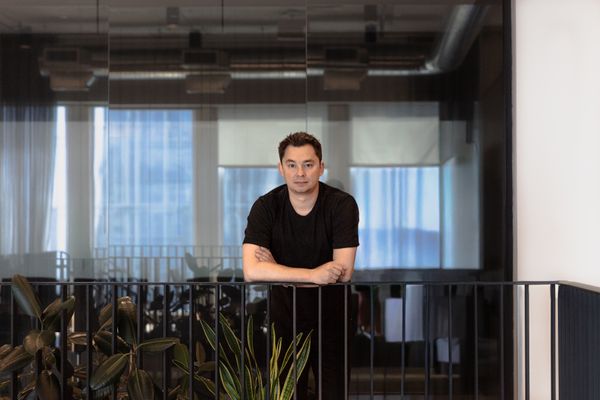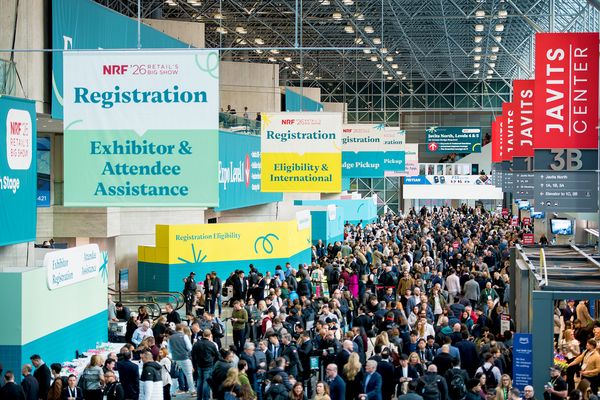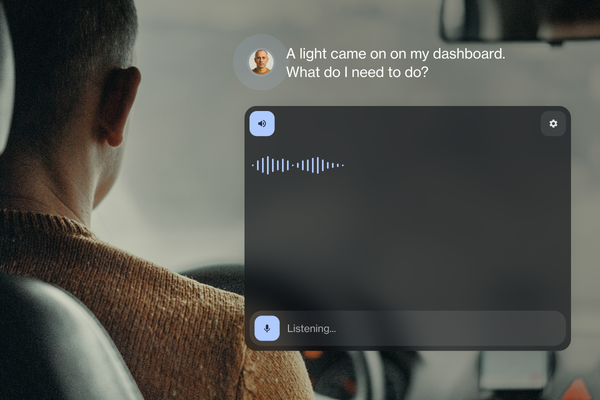Case Study
Empowering Travelers Through Al: United Airlines' Self-Service Revolution

As the largest airline in the world*, United Airlines operated nearly 700 international flights per day to 133 destinations across 67 countries and 1.3 million U.S. flights to over 200 cities in 2024. The company is deeply committed to providing high-quality customer experiences, and backs up that dedication with proactive, industry-leading customer service.
Read on to learn how United Airlines uses NLX's multimodal Al technology to reduce wait times, alleviate heavy customer service workloads, and improve accessibility-while sending CSAT scores soaring.
Skyrocketing customer calls can lead to long wait times for travelers and agents
United Airlines aims to get customers to their destinations on time, and it recognizes things don’t always go as planned. When passengers have to reach out for customer support, they’re often looking for a solution. Long wait times and call times can make matters worse.
In 2022, when post-lockdown travel surged, United Airlines’ customer inquiries soared to about 30 million calls a year. The airline needed a way to reduce wait times and the customer service workload, and to empower customer support agents with the flexibility to provide more personalized service to travelers.
“There was a huge influx of questions about canceling travel, because more people were traveling in general, and then canceling if they got sick or something else changed—but the airline still had the same number of agents handling calls,” says Brian Dawson, Chief Strategy Officer at NLX. “And they were getting extremely high volumes of the same questions.”
United Airlines began exploring ways to create a repeatable, automated process to help customers with routine requests like canceling flights, completing forms for pets and service animals, and adding bags. The airline needed a solution that would both reduce costs and allow its agents to focus on more complex calls. United also wanted to explore how increasing automation could improve customer satisfaction and service overall.
Rachel Walker, United Airlines’ Managing Director of Service Transformation for Customer Contact Centers, was ready to take on the challenge. “We started looking for ways to improve automation in our voice channel,” she says. She just needed to find the right solution.
NLX customizes conversation flows for a less stressful customer experience
The airline immediately saw potential in the multimodal capabilities of NLX, which allows companies to automate any requests that begin with a phone call—even complex ones—by synchronizing voice with other modalities, like websites or mobile applications.
To demonstrate, NLX created a proof of concept (PoC) that yielded impressive results, surpassing United Airlines’ expectations. “It resolved an extremely high level of customer inquiries—much higher than some of our existing automations,” says Walker. “The satisfaction scores were extremely high, too. It was incredible.”
United Airlines was also impressed by NLX’s no-code, easy-to-use interface. “It’s much easier to build and manipulate conversation flows,” says Walker. “It gives us a lot more control on the business side so we don’t need to ask our technology resources to help.”
The airline was also delighted to discover that the platform did not make customers feel trapped in the system. This is important because the company firmly believes that travelers should always be able to escalate to a person if necessary.
United Airlines collaborated with NLX and began implementing specific features, including flight cancellation requests, baggage inquiries, and accessibility services that allowed people to easily add a wheelchair or service animal to a flight. These accessibility desk automations were particularly important across the industry, and this was an opportunity to improve everyone’s experience—and to stand out.
“As we developed the conversation flows, we worked closely with United Airlines agents to consider the different concerns of people calling to add wheelchair service as opposed to those calling because their flight was canceled, for example,” says Dawson.
NLX’s dedication to working with service agents—the people on the ground—set it apart. This approach results in conversation flows that are based on reality, rather than projections or assumptions. The implementation process also incorporates A/B testing for various scenarios, which supports data-based decision-making.
After the NLX team completed its information-gathering phase, it developed best practices and proposed conversation flows that respond appropriately to the needs of travelers in specific situations. NLX’s patented multimodal no-code technology makes customization easy and empowers customers to self-serve without ever needing to speak to an agent (unless they want or truly need to), reducing their time on the phone overall.
NLX also integrates more seamlessly with the airline’s other voice technology. Now when a customer calls, the interactive voice response (IVR) system takes the call and guides customers through a few AI-powered prompts, triggering the appropriate conversation flows. Unlike its competitors, NLX then leverages additional modalities that make the interaction easier.
For example, after going through the prompts, the system will often send customers a text that takes them to a United Airlines website where they can make their changes. The voice assistant, powered by NLX Voice+, then stays on the line with the customer, guiding them through inputting information digitally to complete their request—and the call does not drop.
Happy customers, award-winning solutions
On average, over the last six months, 31% of flight cancellation requests and 64% of wheelchair contact center requests are automated through NLX, which resolves a high volume of time-consuming calls from the queue. Meanwhile, customer satisfaction scores (CSAT) are 82% positive for cancellations and 90% for wheelchair assistance and handling requests— well above the industry average of 76% for airlines. These numbers highlight how NLX's multimodal technology has become a key component of United Airlines' AI strategy, driving efficiency while maintaining high customer satisfaction.
Customers aren’t the only ones impressed by United Airlines’ newest automations. In 2024, the Opus Research Conversational AI Awards recognized the airline for “making it possible for travelers to add a wheelchair or a service animal to a flight reservation in minutes by offering an automated experience when customers can’t find how to do it online or reach out for assistance.”
As the relationship continues, NLX will become even easier to use. “It continues to get simpler because you can just keep growing the infrastructure, piecing out what you need for new use cases, instead of having different strategies for each channel,” says Dawson.
For Walker though, the NLX team is key to the initiative’s ongoing success. “That's why we're still here and why things are going well,” she says. “I don't feel like they're ever trying to sell me something. I feel like they're trying to help me solve my problems and improve the customer experience.”
* United is the largest airline as measured by available seat miles





